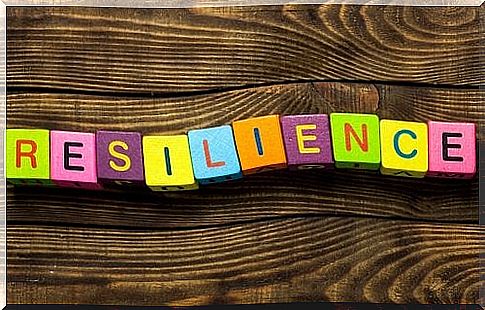What Makes Some People More Resilient Than Others?

Emotionally resistant and resilient people know how to deal with stress more effectively and recover more quickly in the face of adversity and crises that may arise.
However, what are these emotionally strong people doing to be more effective when it comes to dealing with stress? The answer lies in what is known as emotional resilience.
Emotional resilience is the ability to adapt to stressful or crisis situations. More resilient people are able to adapt in the face of adversity and deal with the stress brought on by life changes, whether large or less significant.
Thus, it has been proven that people who can overcome brief moments of mild tension can also handle large crises with greater ease.
Thus, being resilient on a daily basis makes it possible to develop capacities to face big problems and big disasters.
What influences emotional resilience?
Up to a point, emotional and physical resilience is innate. However, it is also a capacity that can be developed.
By nature, some people are less affected by changes and are able to “take” the blows better. This ability can be observed from childhood and generally lasts over time.

Emotional resilience can also be linked to factors beyond our control, such as age, gender and exposure to traumatic situations. However, resilience can be fostered with a little effort.
Characteristics of emotional resilience
Resilience is not a fixed quality, as there are many degrees depending on the person’s ability to deal with stress. However, resilient people share certain characteristics.
The main ones are as follows:
- Emotional Awareness: Resilient people have emotional awareness, understand what they are feeling and why. They also understand better the feelings of others, because they are more in connection with their interior life.
- Perseverance: For some intrinsic or extrinsic reason, resilient people are action-oriented, trust the process, and don’t give up.
- Internal Locus of Control: Resilient people trust their own control instead of believing that external forces control their existence.
This characteristic results in a low level of stress, because people with an internal locus of control and a realistic view of the world may be more proactive in dealing with stressors, are more oriented towards finding solutions and feel a greater sense of the great sense of control.
- Perspective: Resilient people are able to recognize and learn from their mistakes, see obstacles as challenges, and allow adversity to make them stronger. They can also find meaning in life’s challenges instead of placing themselves as victims.
- Support: Resilient people are generally strong people who know the value of social support and are able to surround themselves with supportive friends.

- Optimism: Resilient people are able to see things from a positive perspective and believe in their own strength. It can change the way they deal with problems, while keeping victimhood away.
- Sense of humor: Resilient people are able to pick themselves up emotionally and even laugh at the difficulties in life they are going through.
This can be of great benefit, as they change their perspective and don’t see the circumstances as a threat, but as a challenge. Thus, their body will react differently to stress.
How to be more resilient?
Emotional resilience can be developed. Thus, we have multiple opportunities every day to train.
All we need is a real desire to be more resilient and to get involved in this process.
Although it is not easy or fast, these few ideas will help you build your resilience and be stronger emotionally:
- Be flexible with yourself and with others. Resilient people are able to adjust their goals and find ways to adapt.
- Learn from each of your experiences. Resilient people are always able to learn something, turning every difficulty into an opportunity to grow.
- Take action. Don’t conform to just thinking about what would be better or what you could do. Resilient people go out of their way to find the solution to a problem instead of being paralyzed by negativity.
- Cultivate your relationships with others.
This way, you will have someone to rely on when you are going through a difficult time, and you will be more comfortable accepting their help. - Have an emergency exit. Make sure you always have opportunities to express your feelings and let go of the tension.
- Set goals for yourself. Do things that will make your life meaningful.
- Believe in yourself. Recognize your strengths and develop your abilities.
- Cultivate good humor. Strive to be in a good mood, even in difficult times. Remember that laughter relieves stress. It will help you keep things under control and maintain a more optimistic attitude.








